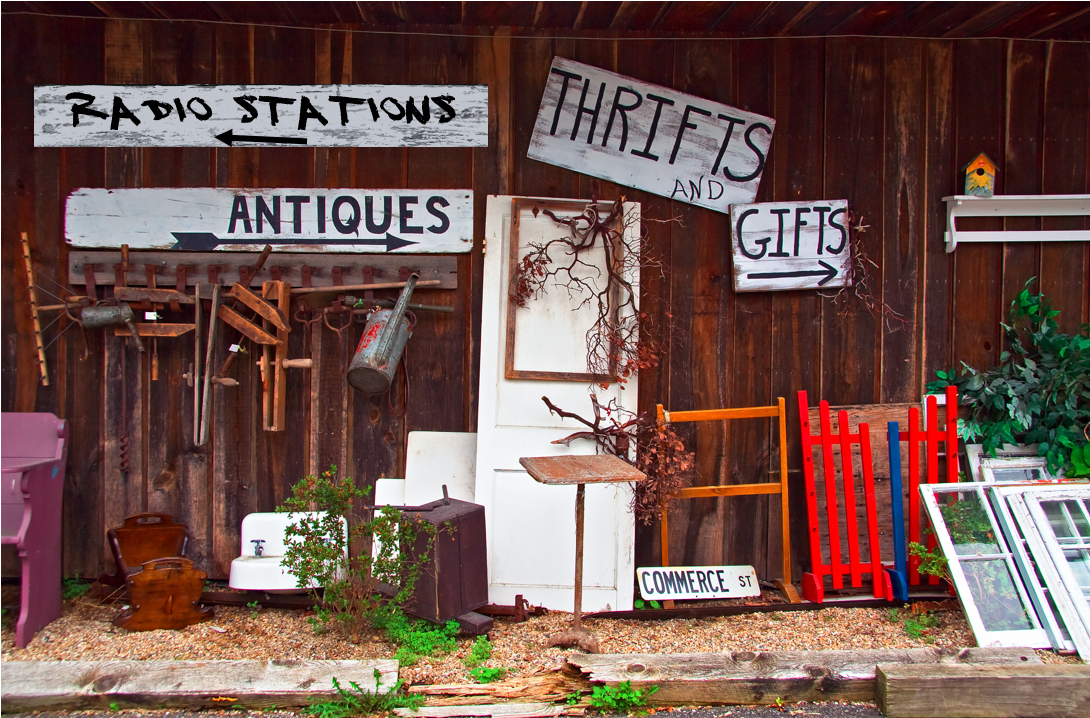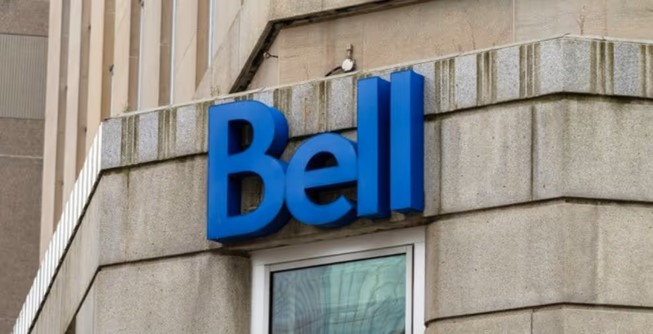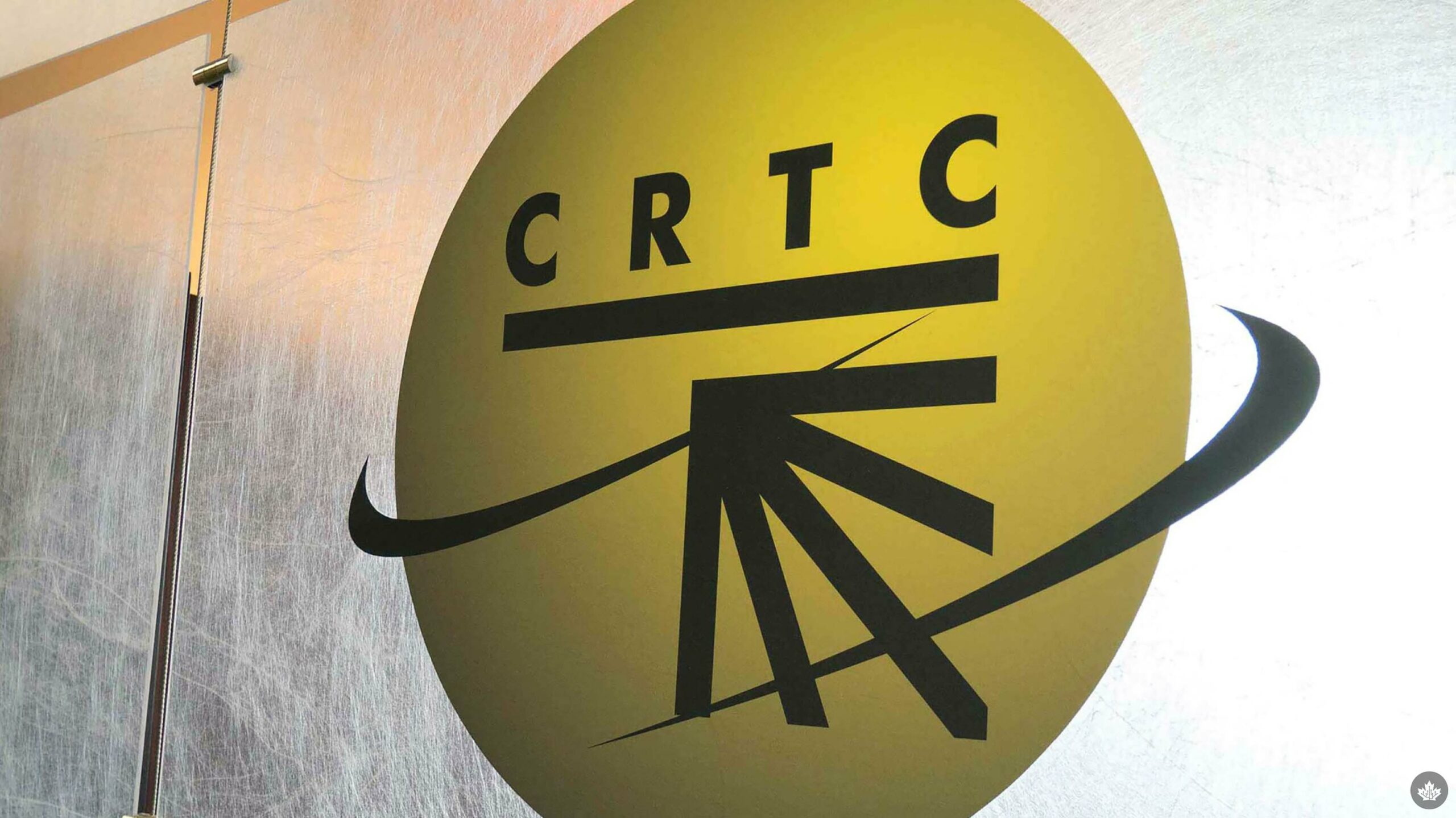
Imagine for a moment you were a big player in commercial real estate. For years, you’ve invested in office buildings in mostly large metropolitan markets. And now, your company executive team has reached the conclusion it’s time to sell off a substantial percentage of your properties – around half – with a focus on liquidating those that have been struggling.
You strike deals with multiple buyers, and now it’s time to announce to the world your company is making these big moves, with an announcement of who’s buying those properties you put on the market.
And then your chief legal and regulatory officer makes the statement that commercial real estate “is no longer a viable business.”
 Seriously? Aside from what this bold statement says to your buyers, think about its implications on the rest of your commercial real estate business where you still own scores of properties.
Seriously? Aside from what this bold statement says to your buyers, think about its implications on the rest of your commercial real estate business where you still own scores of properties.
Additionally, there’s a high human toll to your decisions. All told, you’re projecting terminating 9% of your overall workforce – nearly 5,000 jobs in all. And what about the thousands of your employees still on your payroll who have now heard about your extreme lack of confidence in the business – and their livelihoods?
What does it say about your commitment – or lack thereof – moving forward? Why would anyone remotely serious about their careers join or stay with a company running away from their chosen field as fast as they are? And why on earth would you blurt out your actual “take” on the condition of the business in general, and your properties specifically, at the time of sale?
Isn’t it tantamount of the company saying, “We wish you well with our former properties, but the fact is, they’ve become a bad business.” It’s similar to saying to that nice young couple who just plunked down beaucoup bucks to buy your house that you’ve dumped an asset with black mold, foundation cracks, and other systemic problems that explain why you’re moving out at high speed with a strong intent not to stay around too long.
Crazy, you say. But this is exactly what transpired last week when Bell Media of Canada announced the sale of 45 of their 103 stations in Ontario, Quebec, British Columbia, and other locales in Canada.
Canada.
And what about the seven companies that purchased these Bell Media properties:
Vista Radio, Whiteoaks, Durham Radio, My Broadcasting Corp., ZoomerMedia, Arsenal Media, and Maritime Broadcasting.
Do you think some of them might be experiencing a case of buyer’s remorse, while probably now having to explain to their investors why Bell Media’s chief legal and regulatory officer, Robert Malcolmson, said:
“This is a significant divestiture. That’s because (radio’s) no longer a viable business.”
This one hurts, especially in Canada, but it has reverberations throughout the global radio industry, particularly here in the U.S. Canadian Prime Minister Justin Trudeau wasted no time and minced no words slamming Bell’s parent company BCE, Inc.
“I’m furious. This is a garbage decision by a corporation that should know better,” PM Justin Trudeau tells reporters in King City, Ont., as he responds to a question about recently announced layoffs at Bell.
#cdnpoli pic.twitter.com/udtnqbY8O7— CPAC (@CPAC_TV) February 9, 2024
Trudeau was especially incensed. This was not the first round of layoffs from Bell, and the company had just received $40 million in regulatory relief from the government. He was ready for the question about Bell Media’s transaction and staff reductions, and was not the least bit happy about it.
Evidently, some of Bell’s frustration is on the doorstep of the CRTC – the Canadian Radio and Television Commission – their equivalent of the FCC. Apparently, the Bell team is of the belief deregulation has not been coming fast enough to make their business whole.
 I can’t tell you much about CRTC’s “rules & regs.” While Jacobs Media has done extensive work in Canada over the last many decades, the CRTC’s legal binds seem even stronger than the FCC’s. Back in the day, programmers in Canada were often evaluated and even compensated based on their knowledge of CRTC’s spaghetti policies on issues like “Canadian content” – or “Can Con” as it was traditionally called.
I can’t tell you much about CRTC’s “rules & regs.” While Jacobs Media has done extensive work in Canada over the last many decades, the CRTC’s legal binds seem even stronger than the FCC’s. Back in the day, programmers in Canada were often evaluated and even compensated based on their knowledge of CRTC’s spaghetti policies on issues like “Canadian content” – or “Can Con” as it was traditionally called.
As we know from similar circumstances in the U.S., some broadcasters may have overpaid for their properties, in the process, racking up onerous debt. In an advertising economy where radio has lost its luster, perhaps Bell put itself in a no-win situation.
Still, is that any reason to inflame an entire industry – one in which you still own 60 or so radio stations? How will Bell continue to operate those stations under the umbrella of their negative “take” on radio? How will they attract talent moving forward? And how will their sales reps navigate the already chilly and dangerous advertising waters?
I am well aware that most U.S. broadcasters believe they, too, need less regulation if they are to compete against big tech, satellite radio, podcasters, and digital streamers like Spotify. Of course, radio broadcasters are the only players that have to abide by licensing rules and regulations, profanity restrictions, the maintenance of public files, and umpteen other inconveniences and expenses while they try to compete against media brands with none of these obstacles.
Still, you don’t hear any of them setting the radio industry on fire – at least not publicly. By saying the quiet part out loud, Bell has done the radio broadcasting industry a huge disservice not just in Canada, but here in the U.S. as well.
This might be a good time for American broadcasters and other Canadian radio execs to speak out on behalf of the medium. Being silent only allows Mr. Malcolmson’s words to ring, no doubt creating questions and considerable doubt in ad agencies, local retailers on Yonge Street, and others who engage in commerce with broadcasters.
An unviable business?
If you’ve spent any time in antique shops, you know the old phrase, “One man’s trash is another man’s treasure.” That is obviously true in the radio business as well, at least in some circles of the industry. Whatever the Bell Media board and/or corporate team was discussing behind close doors is now out there – apparently with their approval.
Radio broadcasters should step up and provide an alternative – or counter-punch – to Bell’s take on the industry. Of course, every company has the right to buy, sell, or trade their properties. But their dark statement speaks volumes about and causes damage to the radio industry well beyond BCE’s portfolio.
dark statement speaks volumes about and causes damage to the radio industry well beyond BCE’s portfolio.
Are radio stations still a treasure, have they become trash, or will “your mileage vary” depending on what you bought, when you bought it, what you paid for it, and the quality of your stewardship as broadcasters?
The easy days when any idiot could make money in radio are gone. This is the hard part.
While market conditions and the evolution of media and entertainment have made radio ownership considerably more challenging and even precarious in the 2020s, some companies are experiencing success.
Back in the day, there was essentially one way to operate a radio company. Everybody ran pretty much the same plays out of the same playbook. Today, there are many variables at work, creating myriad scenarios that can lead to success – or failure. May the best strategy win. It’s noteworthy Ed Levine is doing it differently than Bob Pittman, Mary Quass, Bill Wilson, and Craig Karmazin.
It’s not lost on me that tomorrow should be a celebration…of World Radio Day 2024, to be precise. And spoiler alert: the theme this year is radio’s centennial celebration. That’s right – a celebration of 100 years of information, entertainment, and local service.
So Bell Media, “no longer a viable business?” My ass.
I can’t think of a better time for broadcast leadership to take a stand about the efficacy, value, and accomplishments of the entire industry. For the sake of your staffs, your boards, your advertisers, and your communities, speaking up for radio – now – is of paramount importance.
Otherwise, Bell gets the last word.
- What To Do If Your Radio Station Goes Through A Midlife Crisis - April 25, 2025
- A 2020 Lesson?It Could All Be Gone In A Flash - April 24, 2025
- How AI Can Give Radio Personalities More…PERSONALITY - April 23, 2025




My take was exactly the same as yours when I read the comment. What a stupid thing to say, especially when they’re still in the radio business!
Bell purchased these stations years ago. Then Bell originally entered into license transfer agreements with the legal (CRTC) commitment to operate these stations to benefit the market to which they are licensed. Bell now looks at these small markets as a poor investment as radio advertising diminishes. It is fair to say, the Vertically Integrated companies (VI’s) see profitability threatened by these markets and have in most cases reduced real local programming to the regulatory minimum of 42 hours or 33% of the broadcast week. The other two thirds of the programming is “networked” on these generically branded stations from centralized locations with no connection to the local market. Local news coverage is also impacted lessening community awareness and value. The product becomes less engaging, the revenue slips and from a corporate point of view there is less value in these properties compared to when they were acquired.
Part of the equation here is none of the buyers are publicly traded companies. Oh, and yes, they know how to do locally focused radio.
Enjoy!
https://www.cbc.ca/listen/live-radio/1-100-ottawa-morning/clip/16041778-local-bell-media-radio-stations-owner
Thanks for sharing this!
On a similar note, here’s Vista’s president…
https://broadcastdialogue.com/broadcast-dialogue-the-podcast-vista-radio-president-bryan-edwards-talks-pending-bell-acquisition
The ‘black mold’ analogy is truly fitting. The ‘viability’ statement itself really demonstrates a particular level of incompetency that imho, is far more likely the root cause of their problems than government regulation. – Thanks for sharing.
Hey Fred,
This is an awesome article and a great day for radio in Canada (my opinion). I know the President of one of the buyers of a couple of these stations, I’ve sat across the table from this person on several occasions and this guy loves radio. This is what we need more of if this industry is going to thrive again in the future. So much more I could say about this topic as a person who’ve worked both in the US and now Canada, but I’ll end on this note. I am so inspired to learn everyday from JBU JocoBlog University, and tuition is free. Thank you Fred!!!
Radio is Trash!
The decline in radio’s profitability can largely be attributed to the greed and echo chamber mentality of radio sales managers and programmers. The essence of radio stations has been compromised by an overarching focus on sales, resulting in a homogenized listening experience. If I drove from Texas to Alberta, one encounters the same repetitive content, devoid of originality and personality.
Furthermore, the regulatory landscape for radio is disproportionately stringent, especially when compared to platforms like YouTube, which enjoy far greater freedom in content creation. This discrepancy is particularly alienating to younger audiences, such as my teenage children, who are unwilling to endure lengthy advertisement blocks that are commonplace on traditional radio and television. They prefer platforms that offer immediate and unobstructed access to content.
When considering radio ratings, the system seems flawed, focusing on a narrow demographic–mainly individuals over 55 who still use home phones. This antiquated approach overlooks the diverse preferences of the broader audience.
The industry appears devoid of true leadership, with many seemingly in a desperate scramble for marginal gains in ratings to appeal to advertisers.
The lie that sales teams continuously preached to their clients is ridiculous, there’s no measurement of people that have left radio, just inflated numbers based on rating a handful of people. Clients are waking up to this and realizing they are being misled again because of greed.
The crux of the issue lies in the industry’s leadership, which seems to be driven by avarice and a lack of vision, leading to a cycle of imitation rather than innovation. The reliance on outdated rating systems, which often only represent a narrow and unrepresentative demographic, further exacerbates the problem, guiding stations in directions that do not resonate with the broader, more diverse audience.
In essence, for radio to reclaim its former glory and relevance, a significant paradigm shift is required–one that values creativity, diversity, and listener engagement over mere profit maximization.
The only thing keeping radio upright is the Car and the 15min drive!
BELL ISN’T in the “Radio” business! They’re in the business of “buy and torch”! We’ve seen this movie for so long that even the general public is beginning to spread that totally ugly message! 87% of U.S. radio stations reportedly are NOT profitable. That’s not rumor…that’s FACT. But it isn’t a “death gasp” for radio. It’s a message to Bell and other non-broadcaster companies to get the Hell outa’ the way and let passionate broadcasters bring these damaged properties back to their role as critical components of thriving properties that once were and CAN ONCE AGAIN, BE!
Not to minimize the boneheaded-ness of Bell’s radio comment, but there might’ve been bigger damage on the TV side: Even though the company isn’t selling off local TV stations, it’s greatly cutting back on news at almost all of them–while also making cutbacks at CTV nationally and on its related cable outlets.
https://broadcastdialogue.com/most-noon-local-ctv-newscasts-cancelled-as-part-of-cuts-at-bell-media
The PM should revoke Bell’s licenses and demand the $40 million govt. benefit be immediately returned as a fine.
Fred,
Bells’, “this is no longer a viable business” is a large statement that rings across every market in every company. But, Fred, you have seen this coming for quite awhile and frankly, Bell just had the balls to say it. That statement is a wake up call to every radio company and I hope radio feeds off it. I love radio but it’s a business, and if it does not adapt, and adapt quickly…….it’s headed the same place as the Blackberry. I see and have talked to many radio companies that believes digital means an out of date website and personalities have twitter accounts.
Yes, changes need to be made in regulations. There is no reason why one radio company can/should own 8 stations in one market……NONE! Variety is the spice of life. Competition makes for better radio. FCC needs to change that. (Canada I think is four per market. That’s more reasonable.)
If I were in charge of the FCC and/or CRTC, a market exclusive live show for each station would be mandatory – all day and nights in major markets. – live and local. Radio needs to convince the big guys at Tesla why radio is relevant. What radio does now is not relevant – it’s generic and a lot of times from out-of-market. Major markets feeding shows to multiple medium and small markets.
From those I have talked about in Canada, the best thing Bell has done is sell off the stations. Bell has no desire to be in this business and I hope to see the new owners take the opportunity to make great “local” radio that matters. (not holding my breath) The shows in multi markets will likely live on. Watch this closely because I think the live and local programmed stations will be few and far between. I hope I’m wrong.
And one last topic……Radio, you have built the house you have today by having “Joe and Jane” now mornings in 3, 4, 5 different markets. Jackie DJ does middays (voice tracked) in 8, 10, 12 or more markets. Radio, you have made your nest by eliminating the local programming…..now sleep in it.
I feel bad for the personalities in the radio business. Every time a story is posted and cheered in the daily newsletters you and I both receive that X show is now expanding to X market……another personality or show is out of a job.
I want to thank you for piping in about Canadian radio, eh. Keep up the great work. The next Tim Hortons coffee is on me 🙂
Don
“As we know from similar circumstances in the U.S., some broadcasters may have overpaid for their properties, in the process, racking up onerous debt.”
I agree with much of this blog. However, the above quote where “some broadcasters may have” – ALL the consolidators did. That’s why the big 3 have filed for bankruptcy and will again. The big 3 consolidators in the US, sadly, are the only ones that matter.
Allow me to define “multiples paid” in a different way. Back in the go-go consolidation days, corporations were paying 15, 20 times or more in “cash flow.” That means these irresponsible managers, banks, and PE companies were paying (for example) for 20 years of profits! Who in their right minds would guarantee or project profits to be stable and grow for two decades? Yet, they did. Realistically, none of these companies and the bankers that enabled them actually thought they’d keep the properties, or the entire company for that matter, for 20 years. Each was looking for a greater fool, but the market eventually dried up.
This is how these companies, including Bell, got into the position they are suffering. Or maybe I should say, this fiscal malfeasance is why so many employees are suffering.
Darryl, like a number of other commenters, you nail the long-term dilemma facing radio’s publicly traded companies and their heavily leveraged properties. And as you suggest, it’s the employees who suffer the most, as is apparently the case is Canada. Thanks for connecting on this one.
For Bell it may NOT be a viable business
For those with enormous debt , it may NOT be a viable business .
But for those who do not have crazy debt and have a strong local presence and do something DIFFERENT it is a VERY viable business .
Our “difference maker” is that Galaxy has invested (over many years) MILLIONS of dollars in our event business .
Radio still brings in nearly 50% of our revenue.. ..but the other 50% is a strong digital presence coupled with meaningful LOCAL events .
I feel like a broken record as I’ve been saying this for years …you can OWN the event space in your market but the people , resources and financial commitment have to be there and come with it . The radio is the giant megaphone to blast the events out far and wide .
It’s like peanut butter and jelly. Better together
Ed, this comment is precisely why I namechecked you in this post. There are many ways to structure companies that once relied solely on radio for content creationo and monetization. Galaxy proves there are lots of ways to build brands, serve communities, and provide successful marketing tools for advertisers. Congraats on your success, and provingg how success has many different looks.
The one parallel between what has happened with Bell across our northern border and the overall situation for radio here is that we have seen it all before. To some degree, we are seeing a parallel with Audacy’s real estate holdings sell-off.
Roger’s quoting of the 87% non-profitable percentage earlier is probably thought by some to be a result of consolidation, multi-market morning shows, voicetracking of talent across multiple stations, etc. But I do not think we would be any better off if we still had the ownership limits of earlier times … in fact, I think we would be seeing a lot of stations going silent and licenses surrendered given the state of the economy and other societal changes that have had a trickle-down effect on radio.
I believe the expansion of the “big box” stores had a bigger effect on local radio than did consolidation. My first PD gigs were in my hometown market, which was then around #130 in the Arbitron rankings. More than 90% of our ad buys were locally owned small businesses (and about a quarter of those were using manufacturer co-op dollars). Those businesses don’t exist anymore, except in the absolute smallest markets, and the ones that have survived can’t afford radio advertising unless it’s at a bargain basement rate.
At least in a cluster, the stronger stations create enough revenue to keep the weaker ones on the air. Even in market #70, my own flagship station, KRKE, is part of a five-station cluster and a big chunk of our ad business is sold in combination with two other stations in the group. And we program each station to attract its target demo … one is locally voicetracked 24/7, one is jockless outside of morning drive and nights, two are jukeboxes with minimal imaging, and I’m doing no jocks but high imaging presence. So you can’t say we have a “one size fits all” approach.
If anything, Bell Media’s Malcolmson, spoke the truth but did not go far enough or phrase it clearly enough. I would have said:
“In the markets we are divesting stations in, it is difficult to build and keep a viable radio business.”
But, unfortunately for him, he didn’t ask my (or anyone’s apparently) opinion before opening his mouth.
It’s about time somebody waved the flag for the art of the broadcaster and the industry that spawned a distinctive connection with humanity. Dilution does not imply devastation. It opens a path for visionaries who have an imagination and an entrepreneurial spirit. Thanks for standing up and turning the light on where smart opportunities can be revealed. Never forget the power of reaching locally and connecting globally at the same time. It is all possible now.
The “Art of the Broadcaster” sounds like a cool new book radio neeeds. (No, I’m not planning on wrting it!). I think you are spot-on about new pathways for innovators and local broadcasters eager to make connections with thier vitial listeners, communities, advertisers.
The smartest people gather together daily to follow what you say, Fred. The opinions here are mostly right on. My good friend Dennis Logsdon used to tell me that “you define your own success”. Obviously radio didn’t appear successful to Bell. Someone must have thought it could rake in multiples of cash-and then when realizing it didn’t – decided to cut their losses. As some have said here, this could open the door for those caring about the “art” of radio. Using the technology available and then making it live ‘n local can return the fun we used to have on the airwaves. I’ve said it before. I don’t need to hear “Coast To Coast AM” or “Red-Eye Radio” on dozens of stations at night.
Dave, it’s been interesting checking out the many comments here left by the rank & file of Canadian radio. As you point out, many of the “fails” are being driven by heavy debt, leading to the inevitable layoffs and topdown management style. Some of these smaller companies that are the buyers for Bell Media stations are upbeaat about what’s next for their new properties. Alas, it’s all in the eye of the beholdr. Thanks for commenting.
I wish Dave’s comment and Fred’s response had already been posted before I did.
The “corporate cluster” model doesn’t work the same way as it does in large and medium markets when you get down to the small and unrated markets … but that’s the way the group owners’ mindset has been.
Maybe we have been targeting the wrong “reason” for radio’s problems. Maybe instead of the frequently suggested non-starter of trying to cut back ownership limits we should restrict ownership of small market stations to smaller groups, be they national, regional or local … and in that way get the improper mindset of “one business model fits all markets” out of the equation.
If you’re not in peoples face, you don’t matter. It doesn’t matter if you post a social media video with hundreds of likes, if your community doesn’t care about you, the format will flip, and they will try something else. The sad reality, though is, there are so many stations, with potentially great formats, that leave a lot on the table, And if they just paid attention to the OTA product, perhaps margins would improve. although I will say another thing I’ve noticed recently in my own endeavors is the natural progression of things. Some companies can simply out tech and out resource the smaller guys, until they can’t, and by then the damage is done. When you think of companies, like SiriusXM, Spotify, YouTube, they are one company, it’s obviously easy for them to be organized and strategic, and while I don’t believe that’s the direction should go in at all, I do believe that, at least, having a more unified vision, as an actual radio industry, would help. Because these days, when I open up the radio headlines of the day, my first thought is, who is getting screwed over today and how did someone screw up something that could have worked?